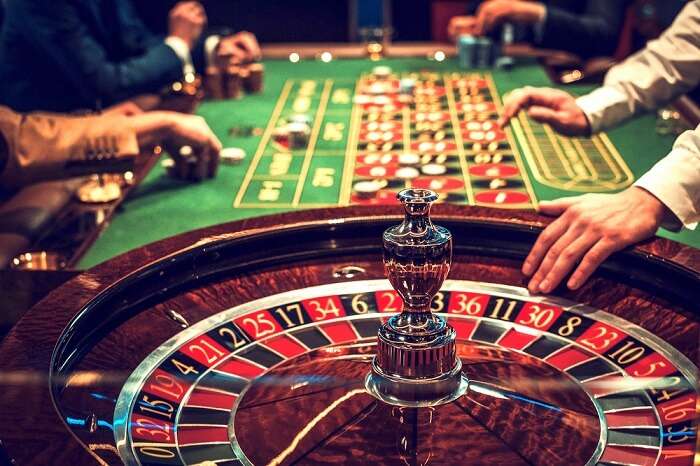
Gambling games have long been a staple in human culture, delivering not just entertainment but a captivating reflection of our hopes, wishes, and concerns. From the rotating wheels of a slot machine to the skill-based strategies of poker, these games embody a spectrum of human sentiments and events. At their core, casino games are not just a chance to earn cash; they are a reflection of life itself, where risk versus reward intertwine and fate can change in an eye blink.
As players convene around tables or sit in front of glowing machines, they engage in a tradition that transcends mere playing. These games reflect our natural desires for social interaction, excitement, and the quest for chance. FB88 They also unveil deeper truths about human nature, such as our relationship with chance and the thrill of the unknown. In exploring casino games, we discover not only the mechanics of play but also the rich tapestry of the human story, showcasing our interconnected narratives of goal and reality.
The Mind Behind Gambling
Wagering is deeply rooted in the psyche of individuals, appealing to various feelings and wants. The excitement of risk-taking is a core aspect that draws players in, whether the excitement of spinning a roulette or the anticipation of drawing a winning card in a poker game. This rush of adrenaline is frequently likened to other forms of thrill, as the unpredictability of outcomes elicits a distinct psychological response. Players often find themselves entranced by the possibility of striking it rich, leading to an almost magnetic draw toward gambling games.
Another, an essential component of the psychology behind gambling is the concept of hope and ambition. Participants often nourish dreams of financial freedom and the opulent lifestyle that can accompany winning. This optimism fuels their ongoing participation in casino games, as it provides a sense of purpose and the belief that a transformative win could be just one bet away. FB88 The story of overcoming odds and achieving success resonates with many, strengthening their commitment to play and involve themselves with these games.
Lastly, social aspects play a significant role in gambling psychology. Casino environments are designed to promote social interaction, where players gather to share the journey of wins and losses. This communal aspect not only amplifies enjoyment but also influences behavior, as individuals often mimic the actions of others in their vicinity. The social validation found in shared excitement can magnify the emotional experience, making casino games a reflection of not just personal desires but also collective engagement within the gambling community.
### Risk and Reward: A Double-Edged Sword
Gambling games embody the delicate balance between danger and gain that resonates deeply with human nature. The rush of placing a wager is often accompanied by a jolt of energy, as players are confronted with the possibility of a huge payout, yet conscious of the risk to lose. This dual experience reflects a fundamental aspect of life: the paths we choose often come with built-in risks, and the quest for benefit can compel us to embrace risks we might not typically consider. In this way, gambling activities echo real-world decisions, enticing players to risk not just their money, but also their dreams.
The allure of big prizes and payouts fuels a wave of hope, inspiring players to dream of a better future that could manifest from a fortunate turn of the wheel or turn of a card. This positive outlook can drive individuals to engage in greater risks, pushing them to take greater risks in search of economic benefit. However, just as in life, the results of these decisions can lead to both triumph and failure. The stories of both big winners and those who have faced losses everything at the casino demonstrate the random nature of luck and its impactful effect on our futures.
Ultimately, the interaction of engaging with gambling activities serves as a potent reminder of the nature of humanity. Every game played is filled with the tension of risk, as gamblers weigh the gains against the dangers. This dynamic not only highlights the excitement that comes with betting but also reveals the risks that come with the desire for more. As we explore the complexities of choice and consequence in both the casino and in life, we find that the pursuit of risk and reward shapes our sense of self and journeys in deep ways.
Community and Loneliness in Gambling Environment
Casino environment is a special mix of social interaction and personal pursuit, reflecting the tensions of individual experience. Players often come together around tables, sharing in the thrill of the action, celebrating wins, and sympathizing over losses. This communal aspect is vital, as it fosters a sense of community and camaraderie among diverse groups of people. Regular visitors to gaming establishments may build friendships and develop routines, turning the gambling venue into a second home where they feel connected to a greater community of players.
However, the appeal of casino activities can also result to isolation. As individuals become engrossed in the thrill of playing, they may isolate from personal relationships or neglect to engage with the world outside the casino. For some, the pursuit of a windfall can distract from genuine connections, leading to loneliness. The situation of being among people yet experiencing solitary is not uncommon, as the attention shifts from collective fun to the individual stakes of each individual’s journey.
This interplay of society and solitude creates a vivid tapestry that defines gaming culture. It showcases the intricacy of social interactions, where happiness and sorrow exist together. Gambling venues serve as both a sanctuary for social interaction and a platform for individual struggles, illustrating how deeply connected our yearning for connection and the individual quest for wealth can be. In navigating this landscape, gamblers confront their own stories—seeking both the rush of the game and the fellowship of fellow players, eventually reflecting the broader spectrum of individual experience.
